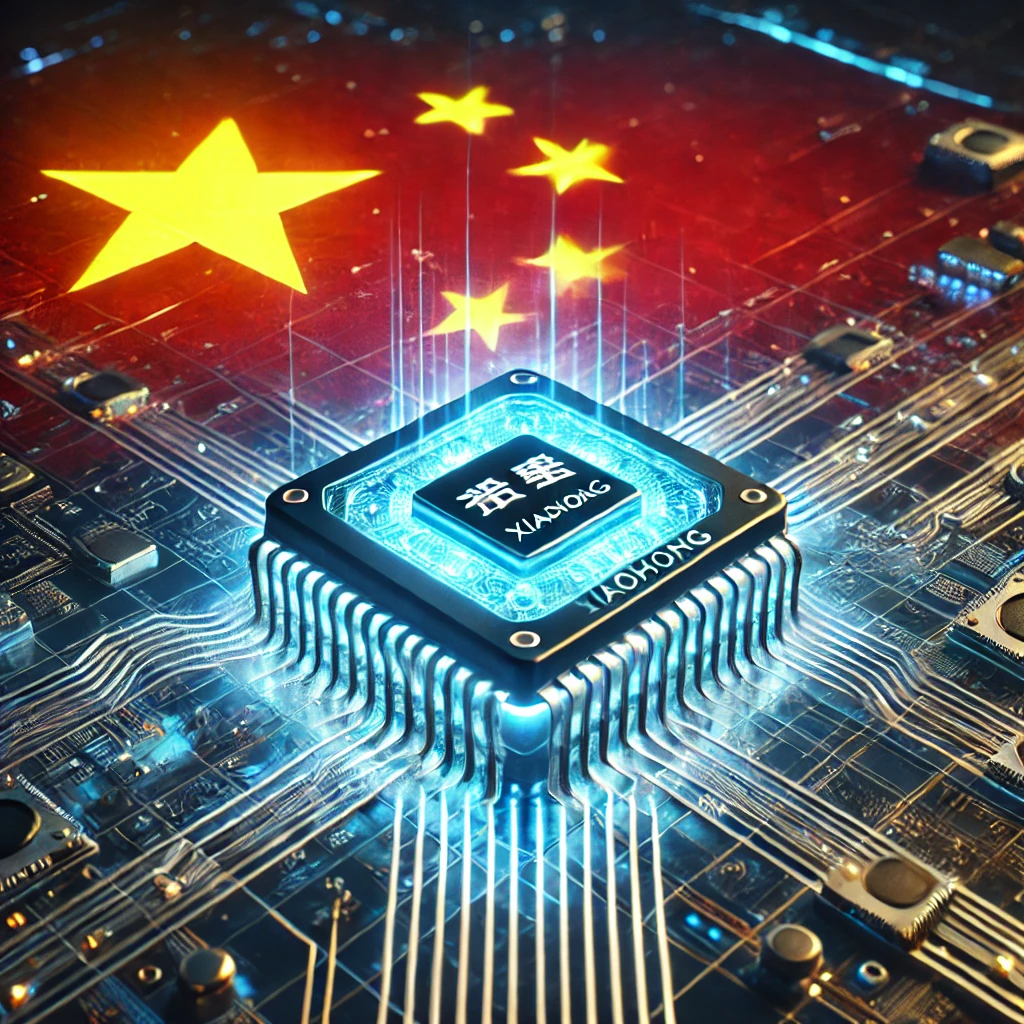China’s Quantum Leap : The Xiaohong Chip and the Future of Global Technology
In the realm of technological advancement, supercomputers, the most basic toaster ovens, and even the indicator lights in your car have one thing in common: they all rely on chips. But what if we told you that the future of technology isn’t just on the horizon but already here, in China’s backyard? Enter the Xiaohong chip, a groundbreaking innovation in quantum computing that promises to revolutionize industries and challenge the West’s technological supremacy. With its unparalleled capabilities in scalable qubits and quantum teleportation, could this be the moment when China dethrones the West in the tech arena? Let’s dive into the intricate details of the Xiaohong chip and its profound implications.
The Rise of the Xiaohong Chip
The Xiaohong chip, developed by the Chinese Academy of Sciences, is not just another shiny piece of tech. It’s a 54-qubit powerhouse that redefines how qubits are utilized. China has raised a staggering $48 billion in funding for a new chip initiative, aiming to ramp up competition with the United States. Unlike the West, which often focuses on the sheer number of qubits, China is diving deep into making those qubits work for practical applications. The Xiaohong chip facilitates real-world solutions through seamless integration into a global cloud platform, setting a new standard in quantum computing.
Scalability and Robustness

One of the standout features of the Xiaohong chip is its scalability. Traditional quantum systems often struggle to maintain coherence and manage larger numbers of qubits effectively. The Xiaohong chip overcomes these limitations by employing sophisticated error correction algorithms and robust qubit management techniques. This ensures stability even as the system scales up, making it a practical choice for industries eager to adopt quantum technology. Whether it’s pharmaceuticals or finance, the Xiaohong chip promises timely and accurate computations that can make or break a company.
A Practical Quantum Solution
Unlike many quantum computers that require highly controlled environments to function, often using extreme cooling methods to maintain qubit coherence, the Xiaohong chip is engineered to function more effectively under varied conditions. This practicality extends to industries such as pharmaceuticals and finance, where the ability to perform accurate computations can be game-changing. By focusing on effective measurement and control systems, China is ensuring that its technology is not just advanced but also practical and effective.
China’s Strategic Approach
China’s strategic approach to quantum computing challenges the West’s obsession with qubit quantity. By emphasizing practical applications and robust qubit management, China is paving the way for a new paradigm in quantum computing. The Xiaohong chip is part of a broader strategy to establish a self-reliant quantum ecosystem, ensuring technological advancement while fostering international collaboration. This strategic move positions China not just as a competitor but as a potential leader in the global tech landscape.
International Collaboration and Innovation
In a groundbreaking move, China is rolling out the red carpet for researchers around the globe. Through partnerships with QuantumCC and China Telecom, the Xiaohong chip will be accessible to researchers worldwide. This open-door policy contrasts starkly with the West’s tendency to guard technological advancements. By inviting global collaboration, China is fostering a culture of shared innovation that could lead to breakthroughs in tackling complex global challenges such as climate change and healthcare crises.
Implications for Global Technology Leadership
The implications of the Xiaohong chip extend far beyond quantum computing. It promises to revolutionize multiple industries, from pharmaceuticals to finance and energy. In the pharmaceutical industry, the chip’s computational power could accelerate drug discovery processes, potentially saving countless lives. In finance, it could transform how risk is modeled and investments are assessed, leading to more accurate forecasting and better-informed decisions. The energy sector could see dramatic advancements in optimizing energy distribution and storage, helping to combat climate change and ensure a sustainable future.
Building a Resilient Technological Ecosystem
China’s strategy includes building an independent industrial chain for superconducting quantum computers. This move enhances technological capabilities while shielding the country from external dependencies, particularly in light of ongoing geopolitical tensions. By investing in domestic capabilities and encouraging global access to the Xiaohong chip, China is creating a robust technological ecosystem that can withstand external pressures.
The Future of Quantum Computing
The Xiaohong chip is not just a technical advancement; it’s a strategic action that challenges the West’s traditional approach to tech leadership. By prioritizing practical applications over flashy numbers, China is positioning itself as a serious player on the world stage. This shift could lead to a reordering of global tech hierarchies, where countries that adapt quickly to these changes thrive, while those that cling to old paradigms struggle to keep up.
Ethical Considerations and Global Impact
As China takes the lead in quantum technology, it will need to navigate the ethical implications of its advancements carefully. Issues such as data privacy, security, and the potential for misuse of quantum technology will require careful consideration. How China addresses these challenges will not only impact its domestic landscape but could also set precedents that affect the entire global tech community.
Conclusion
The Xiaohong chip isn’t just a technological achievement; it’s a bold declaration of intent from China. By signaling that the future of computing is collaborative, China is challenging the West to rethink its approach to technology leadership. The implications of the Xiaohong chip stretch far beyond technology, touching on economics, ethics, and international relations. As the global community navigates these complexities, one thing is clear: the future of quantum computing is here, and it’s being shaped in China’s backyard.
FAQ
Q: What is the Xiaohong chip? A: The Xiaohong chip is a 54-qubit quantum computing chip developed by the Chinese Academy of Sciences. It represents a significant advancement in quantum technology, focusing on practical applications and robust qubit management.
Q: How does the Xiaohong chip differ from Western quantum chips? A: Unlike Western quantum chips, which often emphasize the sheer number of qubits, the Xiaohong chip focuses on effective qubit management and practical applications. It employs sophisticated error correction algorithms and robust qubit management techniques to maintain stability as the system scales up.
Q: What industries could benefit from the Xiaohong chip? A: The Xiaohong chip has the potential to revolutionize multiple industries, including pharmaceuticals, finance, energy, logistics, cybersecurity, and artificial intelligence. Its advanced computational power can lead to breakthroughs in drug discovery, financial modeling, energy optimization, and more.
Q: What is China’s strategic approach to quantum computing? A: China’s strategic approach to quantum computing includes building an independent industrial chain for superconducting quantum computers and fostering international collaboration. This approach aims to create a robust technological ecosystem that can withstand external pressures and drive innovation.
Q: How does the Xiaohong chip impact global technology leadership? A: The Xiaohong chip challenges the West’s traditional approach to tech leadership by emphasizing practical applications and collaboration. It positions China as a serious player in the global tech landscape and could lead to a reordering of global tech hierarchies.
Q: What are the ethical considerations associated with the Xiaohong chip? A: Ethical considerations include data privacy, security, and the potential for misuse of quantum technology. How China addresses these challenges will impact its domestic landscape and set precedents for the global tech community.














Post Comment